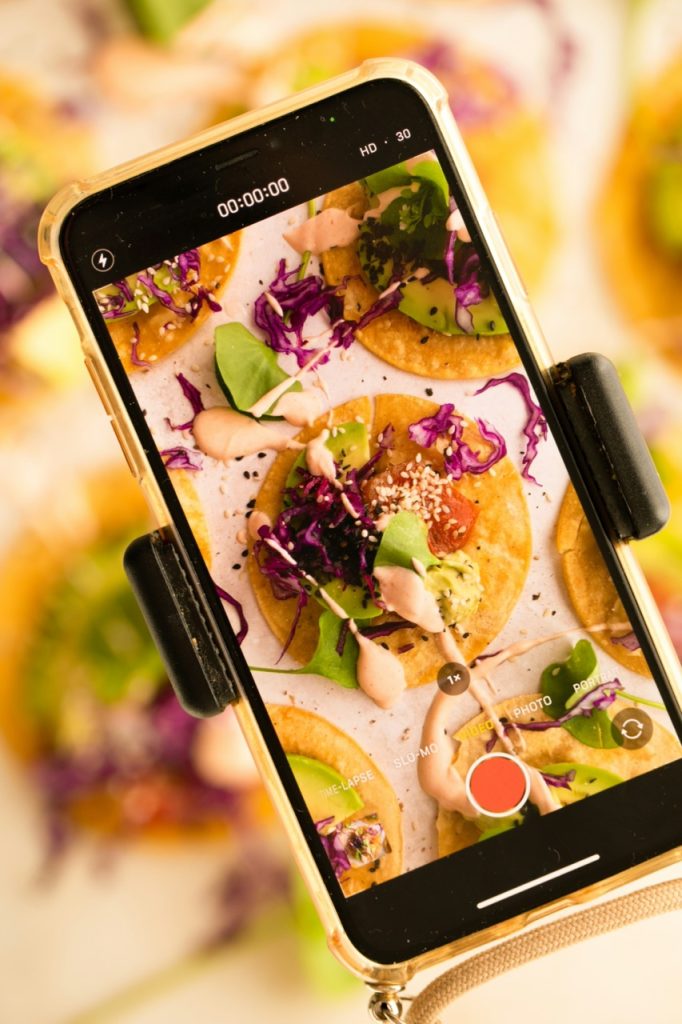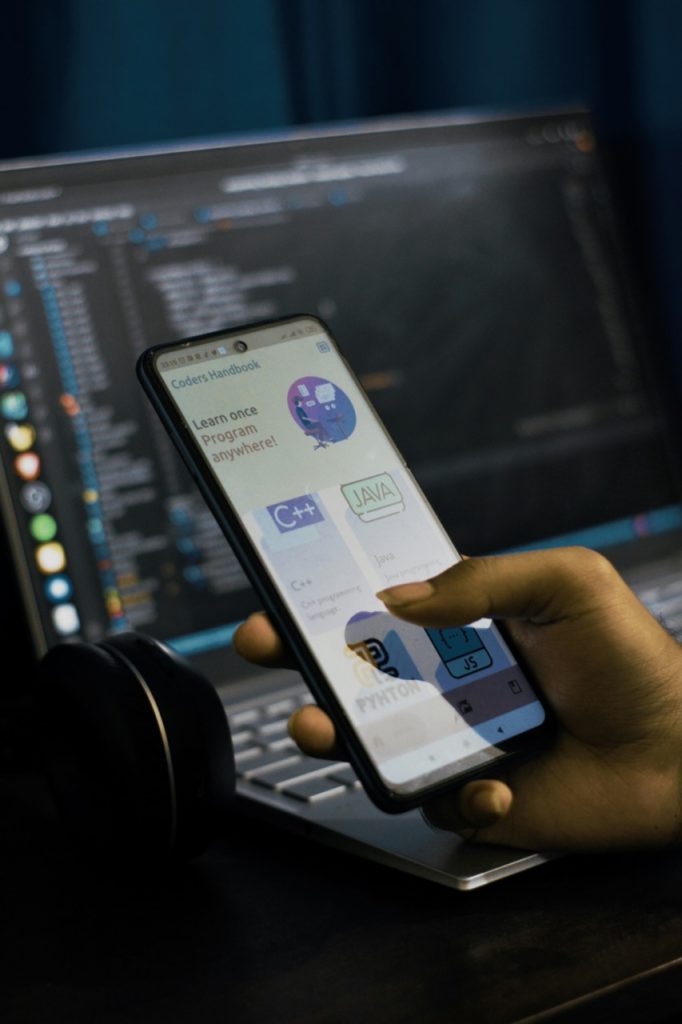
The modern catering industry is experiencing an actual revolution. Digitalization is affecting every aspect of the Mobile Restaurant Management industry, and those companies that had been carrying out their activities until now only on outdated blueprints are now being forced to get accustomed to new vocabulary. What are the major driving forces of this revolution?
- Pandemic and change in consumers’ preferences
The COVID-19 pandemic has pushed the majority of restaurants to rethink their client interaction. Take-away, delivery and reservations through apps is now the norm rather than the exception.
- Mobile growth
It is an age when almost everyone owns a mobile phone. It brings special opportunities for restaurants, since they can interact with clients directly and improve their experience.
- Competition and the need for on-the-go differentiation
For being competitive, business has to apply new technologies. Survival is not only about this, but even differentiating within a large pool of competitors.

Why is it so important that digitalization become a priority in the restaurant sector?
With ever-intensifying competition and strong customer expectations, success of the restaurant is now no longer subject to the food quality and services. Important to consider:
Smoothness of processes
Celadonsoft: Presentation of technologies allows automating a majority of the business processes, such as controlling inventory, accounting and, of course, ordering, and payment.
Data collection and analysis
Processing large amounts of information on customers’ tastes allows gaining more insight into their needs, and this in its turn allows adjusting menus, promotion, and marketing activity.
Improvement of the customer experience
Simplifying the process of ordering and delivery through mobile apps not only expedites service, but also allows customers to eat without taking a break from interacting with the restaurant.
Digital development is not a trends — it’s a survival and success imperative for the modern restaurant industry. Businessmen are not only expected to follow current technologies, but also predict which ones will be ubiquitous in the future. Acknowledging the fact that digitization from restaurant management software development company, like Celadonsoft, is not an individual action, but an ongoing process of adaptation and optimization, will enable restaurants not only to survive, but also to evolve in a changing world.
Mobile technology: A new era of restaurant management
Celadonsoft: It’s hard to overestimate how mobile technology is taking the restaurant business into a new direction. Modern applications not only simplify the work of employees, but also open new horizons for business owners. Consider how mobile solutions are changing the way restaurants are run.
Management simplification
Mobile apps allow restaurant owners and managers to quickly control various aspects of the business. This includes:
- Stock management: At any time, from a distance, you can check the number of ingredients and quickly respond to the need for an order.
- Task allocation: Programs that allow tasks to be distributed among employees help optimize the work process.
- Performance analysis: With the help of mobile platforms, you can receive real-time reports on performance and identify bottlenecks.
Benefits of mobility for owners and staff
Mobile technologies make management more interactive and responsive. Here are the main benefits:
- Flexibility: With mobile applications, controllers can operate from any point, improving the response to situations.
- Decision speed: Due to the availability of data and analytics in real time, owners can react quickly to changes in demand or offer special actions.
- Constant communication with the team: Mobile tools allow leaving comments, share operational information and make collective decisions without wasting time.
Impact on staff
Mobile solutions not only simplify the work, but also increase the level of satisfaction of employees. The data found shows that, using mobile tools, employees can:
- Focus on customer service: Freeing time from routine tasks, such applications give the team more time to pay attention to guests.
- Get instant feedback: Mobile systems enable employees to quickly assess their actions and improve service quality.
Thus, the introduction of Mobile Restaurant Management is becoming not just a trend, but also a necessity. Restaurants that do not adapt their processes to modern technologies risk falling behind the competition. In our rapidly changing world, it is important to be one step ahead and actively use available tools to improve the quality of service and management.
Top features of restaurant mobile apps

Mobile Restaurant Management apps provide restaurant owners and staff with powerful tools to organize their operations and improve the customer experience. Consider the most valuable features that make such apps indispensable:
- Order and booking management
New mobile apps allow orders to be processed automatically, which assists in reducing errors by a great extent. Both internal and external orders are handled by the system, and it can even reserve tables through the app. This assists the restaurant in smoothing out the flow and increasing the number of visitors.
- Real time analytics
Mobile app functionality allows restaurant owners to gain real-time insights into sales, customers and customer preferences. Such access to information allows them to make well-informed decisions, which result in assortment and price optimization.
- Integration with online platforms and delivery services
As food delivery service grows in popularity, integration with the same is a need. Mobile applications help in streamlining delivery operations, allowing for better tracking of orders and on-time delivery.
Simplification of customer engagement with mobile solutions
Technology has evolved a great distance from processing orders alone. Today, one of the greatest opportunities for restaurants is to craft tailored experiences for their guests. Mobile apps provide the following attributes:
Personalized guest experience
Mobile solutions allow you to collect information about customers’ preferences and use it to create personalized offers. For example, regular customers are offered special discounts on favorite foods or invitations to events. This approach not only increases the loyalty level, but also promotes customer return.
Loyalty and reward programs
Loyalty programs carried out through mobile applications help the restaurants retain current customers, and even acquire new customers. Services like periodic reminders of loyalty status can make customers come to the place more frequently, or even order food to be delivered as takeaways.
With a commitment to cellular investment, restaurants have the opportunity to enhance customer communication and competitiveness. The advancements do not only advance the workability of the activity, but new modes of sustaining customer relationships.
Mobile data security and privacy
With the rapid development of mobile technologies continuing to increase in restaurants, data security and privacy threats take center stage. Knowing the nitty-gritty of threats and how to minimize them can be a game-changer for the restaurant’s reputation and customer trust.
1. Securing client data
- Encryption of data: Encryption is another significant method data is protected. Any data transmission through mobile apps (e.g., in payment processing or registering users) needs to be encrypted in order to protect them from being intercepted by hackers.
- Secure communication channels: Employing secure protocols such as HTTPS enables information to be sent safely between the server and client app, restricting leaks.
Security audits and software maintenance: Security audits and software maintenance on a regular basis is not something to be done lightly. Patching of vulnerabilities needs to be included in the management plan.
2. Compliance with standards and legislation
- GDPR and PCI DSS compliance: Any restaurant processing customers’ personal information using mobile applications is required to comply with the Data Protection Commission (GDPR) rules and Payment Card Industry Data Security Standard (PCI DSS) requirements. Such policy regulations are guidelines for data protection and processing procedures.
- Privacy Policy: Developing a privacy policy that is readable and available not only respects clients’ rights, but also avoids legal complications. Users should be told how and why they are collecting their data.
3. Staff training
- Raising awareness: Equally significant is staff work. Employees should be instructed in the basics of secure handling of customer information and know how to act when incidents are identified.
- Phishing and other threats training: Building a culture of security compliance involves having the whole team on board with understanding risks and ways to mitigate them, such as how to spot phishing attacks and other cybersecurity threats.
Lastly, restaurant mobile app data security and privacy is not just legal, but also the way of establishing trust relationships with customers. Such practices will not only protect the business from harm, but also the degree of visitors’ loyalty.
The future of mobile innovation in the restaurant business
Restaurant business nowadays is constantly changing to meet the challenge of future technologies and evolving consumer tastes. One must adapt to these developments to remain successful and prosperous in a competitive market. These are some key trends that, in our opinion, will become characteristic of the future mobile innovation of the restaurant business:
More use of artificial intelligence (AI):
AI will be employed to scan for behavior and customer interface information and provide personalized suggestions and promotions to each visitor.
Interactive menus and AR-technologies:
The use of augmented reality (AR) for mobile apps will allow customers to view dishes prior to ordering, thereby making the process interactive.
Customer service bots:
Chatbots will be a pervasive contact channel for customer interaction, providing nearly instant answers to questions as well as order entry via messengers.
Process automation:
The shift to process automation such as inventory control, inventory and quality management will further reduce the likelihood of errors and improve overall efficiency.
Integration with delivery ecosystems:
Restaurants shall become more intertwined with delivery websites and applications, so customers can acquire it more simply and orders become easier to prepare.

Conclusion: The effect of mobile solutions to restaurant business success
No question, it is beyond doubt that mobile innovation is performing its very purpose to revamp the restaurant business. A few key aspects discussed here are showing how the adoption of cutting-edge technology plays a significant part to ensure success:
Maintaining evolving customers’ needs:
Customers now require high convenience and customization. Mobile restaurant-enabled businesses can provide more customized service and acquire new customers.
Improve efficiency in operations:
Automating in-house operations becomes easy with mobile apps, and it saves time on orders as well as improves employees’ work.
Building loyalty and repeat business:
Loyalty programs rolled out through mobile channels guarantee increasing the number of regular customers and their satisfaction.
Therefore, the restaurant business, in order to flourish in the digitalization age, is forced to implement mobile solutions into its operations. Our advice to restaurant business owners: do not wait to leverage mobile technologies. Your company will be technology-enabled to continue business in the fast-paced business world. Ask yourself – are you ready for a future where mobile innovation is the norm, not the exception?


